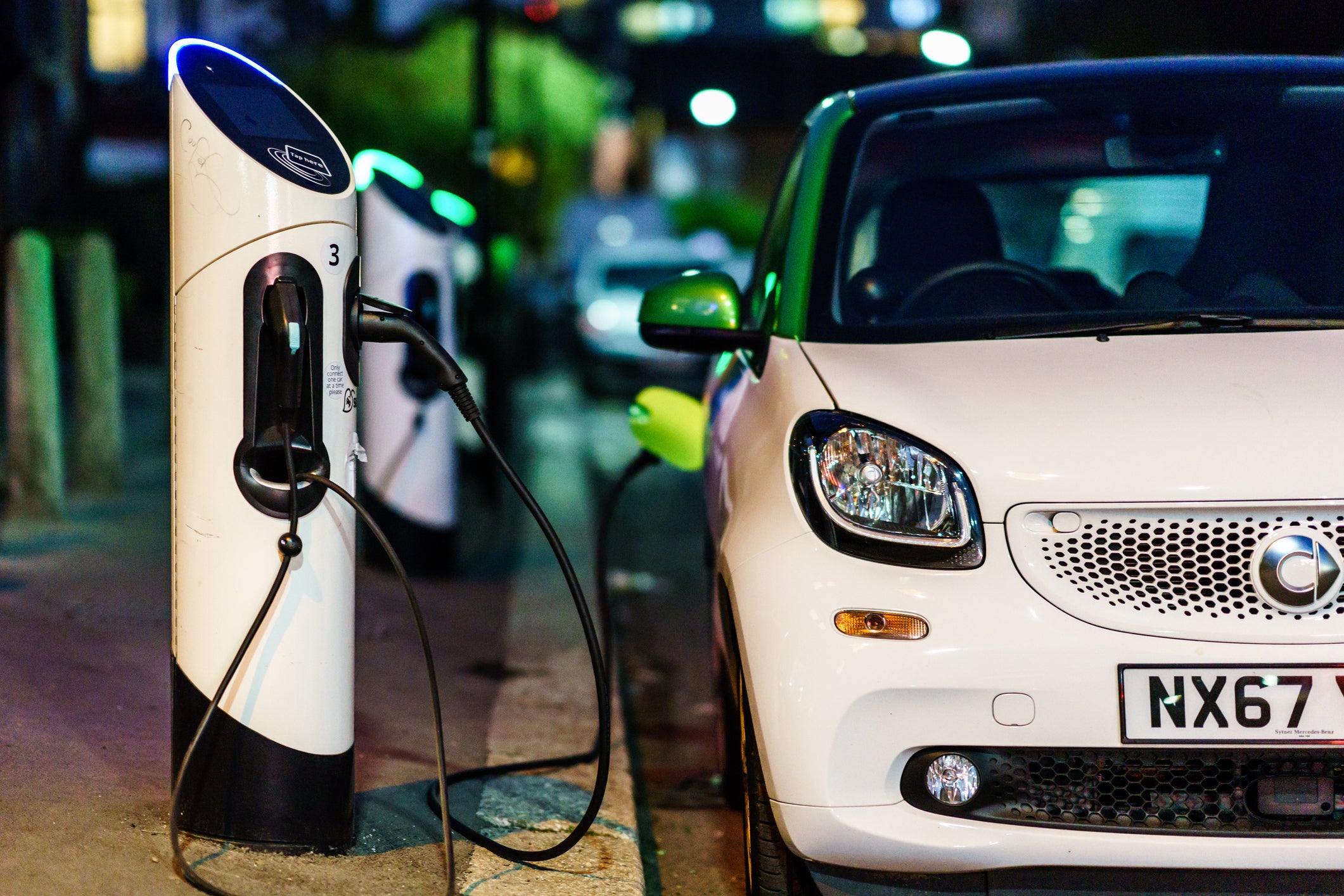UK not prepared for ‘huge challenge’ of phasing out petrol and diesel cars, MPs warn
The government has announced a ban on the sale of new petrol and diesel cars from 2030 as part of efforts to tackle the climate crisis

Your support helps us to tell the story
From reproductive rights to climate change to Big Tech, The Independent is on the ground when the story is developing. Whether it's investigating the financials of Elon Musk's pro-Trump PAC or producing our latest documentary, 'The A Word', which shines a light on the American women fighting for reproductive rights, we know how important it is to parse out the facts from the messaging.
At such a critical moment in US history, we need reporters on the ground. Your donation allows us to keep sending journalists to speak to both sides of the story.
The Independent is trusted by Americans across the entire political spectrum. And unlike many other quality news outlets, we choose not to lock Americans out of our reporting and analysis with paywalls. We believe quality journalism should be available to everyone, paid for by those who can afford it.
Your support makes all the difference.The government is not yet prepared for the “huge challenge” of phasing out all new petrol and diesel vehicles within the next 14 years, MPs have warned.
Transport is the UK’s most polluting sector, with petrol cars accounting for the bulk of emissions. The government hopes to slash emissions from Britain’s roads by encouraging people to switch to electric vehicles.
As part of his 10-point climate plan launched in November, Boris Johnson announced a ban on the sale of new petrol cars from 2030 – and by 2035 all new cars and vans must be zero-emissions at the tailpipe.
However, a report from the Public Accounts Committee warned that the government has not yet done enough to prepare for its ambitions. In 2020, just 11 per cent of new car registrations were for “ultra-low-emissions vehicles”, the report noted.
To get to 100 per cent by 2035, the government will need to do more to convince UK drivers of the “affordability and practicality” of electric cars, the report said.
In March, the government slashed the grants available for electric car buyers, sparking condemnation from climate groups.
The government must also do more to further ramp up the roll-out of car charging infrastructure across the UK – especially in disadvantaged areas, the report added.
“We are not convinced that the departments are doing enough to ensure all communities have access to the appropriate charging infrastructure, for example in rural areas or urban areas without access to off-road charging,” the report says.
The findings come just days after UK minister Alok Sharma urged all countries to “call time” on petrol cars ahead of Cop26, a major UN climate conference being hosted in Glasgow in just under six months’ time.
Meg Hillier MP, the Labour politician who is chair of the Public Accounts Committee, said that the government had a “mountain to climb to get to all new cars in the UK emitting zero carbon in the next 14 years”.
“This isn’t about more targets with no plan behind them inevitably getting missed – it’s about averting the real-world challenges that are bearing down on all of us,” she said.
“The government needs to get the country behind it and lead the way in the global race against climate change.”
In response to the report, a government spokesperson said: “We’ve got a highly ambitious and world-leading approach to increasing the uptake of zero emission cars and the progress we’re making in this area will help us to meet our targets.
“Already, we’re investing £2.8 billion in helping industry and drivers make the switch – and will continue our work to install thousands of charge points and boost the development of new technologies to meet our goals.”
Join our commenting forum
Join thought-provoking conversations, follow other Independent readers and see their replies
Comments